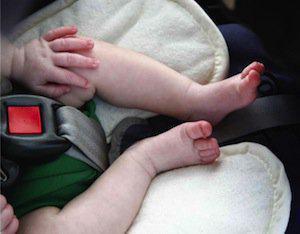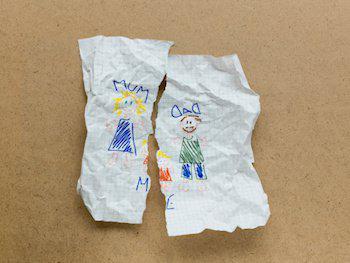Recent Blog Posts
Preventing Child Abuse and Neglect
 During the month of April, National Child Abuse Prevention is recognized. And while we should always be sensitive to the needs of young Americans, special recognition of child abuse and neglect gives those needs a renewed focus, both nationally and here in Illinois.
During the month of April, National Child Abuse Prevention is recognized. And while we should always be sensitive to the needs of young Americans, special recognition of child abuse and neglect gives those needs a renewed focus, both nationally and here in Illinois.
The federal government first extended legislative protection to abused and neglected children in 1974. That law, the Child Abuse Prevention and Treatment Act (CAPTA), created a national focal point for combating child maltreatment and supporting states’ efforts to prevent child abuse and neglect.
Dividing Property in Dissolution of Marriage
 Whether you have been married 50 years or 50 days, you and your spouse likely have commingled property that used to be exclusively yours. Money from your individual savings accounts can be commingled; money or property you received from a relative through inheritance can be commingled; and even a home or farm that you owned individually could have become commingled during your marriage.
Whether you have been married 50 years or 50 days, you and your spouse likely have commingled property that used to be exclusively yours. Money from your individual savings accounts can be commingled; money or property you received from a relative through inheritance can be commingled; and even a home or farm that you owned individually could have become commingled during your marriage.
- Traceable property - a contribution that can be clearly traced from the marital estate to the non-marital estate, such as a car that was bought with money directly received from an inheritance;
Types of Custody Arrangements in Illinois
 Often, the most difficult aspect of a divorce is determining who will care for the children and who will make decisions regarding their welfare. Illinois courts will use a “best interests of the child” standard when awarding custody. In applying that standard courts have flexibility to settle on many different types of custody arrangements.
Often, the most difficult aspect of a divorce is determining who will care for the children and who will make decisions regarding their welfare. Illinois courts will use a “best interests of the child” standard when awarding custody. In applying that standard courts have flexibility to settle on many different types of custody arrangements.
- Willingness of the parents to share custody;
Preventing Disputes When Dividing Property
 One of the hardest parts of divorce is finding a fair way to divide assets that have been shared and intertwined over the years. Many assume that when couples get divorced, property is simply divided 50/50. But now most states, including Illinois, use a process called equitable distribution, where a number of factors are considered when dividing assets.
One of the hardest parts of divorce is finding a fair way to divide assets that have been shared and intertwined over the years. Many assume that when couples get divorced, property is simply divided 50/50. But now most states, including Illinois, use a process called equitable distribution, where a number of factors are considered when dividing assets.
If one spouse has significantly higher earning potential or significantly worse health than the other spouse, property might be divided to support the spouse with more needs. There are a number of other factors considered in equitable distribution, but first the court must classify all of the property to be considered, as either marital property or non-marital property.
Marital vs. Non-marital Property Non-marital property is easier to determine. Under Illinois law, it consists of property acquired by one spouse before a marriage, or property acquired after a legal separation. Also included are gifts intended for only one spouse, inheritance of one spouse, or items or other property that was purchased with any of the above funds. Marital property sounds simple; it basically consists of all the property acquired by either spouse during the marriage… with the above non-marital property exceptions. However, also included in marital property may be property that was originally non-marital property, but that was at some point contributed to the marital residence or a co-owned business. It can also include the time and labor (sweat equity) that was put into a residence or business. This transmutation of non-marital to marital property is called commingling.Preventing Costly Disputes
Prenuptial Agreements For Later in Life Marriages
 "The Other Woman," an upcoming Hollywood feature about infidelity, stars some of America’s most celebrated celebrities. The film’s cast includes Cameron Diaz, Leslie Mann of "This is 40" and "Knocked Up," supermodel Kate Upton, and pop singer and rapper Nicki Minaj.
"The Other Woman," an upcoming Hollywood feature about infidelity, stars some of America’s most celebrated celebrities. The film’s cast includes Cameron Diaz, Leslie Mann of "This is 40" and "Knocked Up," supermodel Kate Upton, and pop singer and rapper Nicki Minaj.
In a recent interview promoting the film and discussing its subject matter, Diaz made some controversial comments when she stated, "Everyone has been cheated on, or everyone will be cheated on." Her remarks were taken by some to be another Hollywood denunciation of monogamous relationships. However, though Diaz has never been married and has no children, she has been involved in long-term relationships before. Now in her 40s, she says she is open to marriage. The comments also spurred discussion about changes in long-term family planning, particularly among women. Compared with past generations, many women today have chosen to start careers rather than settle down and start families. Additionally, advances in medicine have contributed to success with late pregnancies, and it is common today for women to wait until their mid 30s before thinking about having children. Ultimately, this means that many women have amassed more personal wealth and property by the time they get married. In these situations, prenuptial agreements can prove crucial. Consider Getting a Prenuptial Agreement A prenuptial agreement, or a prenup, may be the answer for people who wish to maintain their financial independence but who also want to commit to a partner in marriage. Many people already own real estate and have built significant savings by the time they decide to settle into a marriage. Others, who may be getting married for a second or third time, have now become more established in their finances, and may want to protect what they have earned. For example, when one spouse already owns a home that the new couple will move into, and that spouse wants to dedicate that home to the new family unit, an agreement could be reached where the home is to be considered marital property rather than pre-marital property. It would be divided as such in the case of a divorce. In another instance, if a spouse wants to start a business that he or she will operate independent of the other partner, then an agreement could be reached establishing the business as non-marital property. Thus, in the case of divorce, the other spouse will not be able to claim ownership. Strengthen a Prenup With Professional Legal Advice A prenuptial agreement must be in writing and signed by both parties. As with any contract, it can be voided if a court finds duress or undue influence. To ensure enforceability and to make sure you have considered all angles, it is helpful to consult with professionals who regularly deal with contracts and domestic relations. Better planning can lead to a better marriage, or a better life after marriage. Contact family attorneys at Goostree Law Group for such professional advice throughout the Chicago suburbs.
Litigated Divorce Alternative: Consider Mediation
 Is there such a thing as a hassle-free divorce? Probably not, given the emotional, financial, and legal difficulties that follow in the wake of a divorce. However, that does not mean you and your divorcing spouse are destined to spend tens of thousands of dollars in court fighting over such trivial questions as who gets the family lawn chairs. In Illinois, there are a number of options to help your divorce be as conflict-free and cost effective as possible.
Is there such a thing as a hassle-free divorce? Probably not, given the emotional, financial, and legal difficulties that follow in the wake of a divorce. However, that does not mean you and your divorcing spouse are destined to spend tens of thousands of dollars in court fighting over such trivial questions as who gets the family lawn chairs. In Illinois, there are a number of options to help your divorce be as conflict-free and cost effective as possible.
- Cost Benefits - The mediation process can save you money, especially compared with the prospect of an expensive, drawn-out court battle. You and your divorcing spouse may split the cost of the mediator.
Commingling Assets: Dividing Property in Illinois Divorce
Warning: stripos(): Offset not contained in string in /home/ocvaws/public_html/system-joomla-shared-core/components/com_easyblog/easyblog.php on line 6
U.S. Census Bureau Report on Child Support Collection Trends
 Raising children is often referred to as the most challenging (and rewarding) task with which you will ever be charged. Caring for a child can be even more difficult following a divorce, particularly if one parent does not take an active role in the process. Unfortunately, many mothers and fathers across Illinois are forced to raise children alone.
Raising children is often referred to as the most challenging (and rewarding) task with which you will ever be charged. Caring for a child can be even more difficult following a divorce, particularly if one parent does not take an active role in the process. Unfortunately, many mothers and fathers across Illinois are forced to raise children alone.
Money is often tight for single parents. Child support laws are designed to help spread the burden so that both parents contribute and act responsibly.
U.S. Population Report & Child Support Collection Trends
Unfortunately, some parents fail to meet their support obligations. Failure to pay is not an isolated problem. According to federal data, every year more than one-third of all actual support obligations are not paid. This amounts to nearly $15 billion each and every year in missing aid. Some parents receive no support at all from their former partner, while others receive some money but less than the full amount. Analysis suggests that less than half of parents actually pay their full obligation each year.
Decades of Child Abuse Exposed
 A heartbreaking story of child abuse broke early this year, on January 21st 2014, when 6000 pages of allegations against 68 Chicago priests were released to the public. Of course, the problem of abuse in the Church did not just recently surface. Accounts of child abuse date back 500 years; one of the reasons cited for the Protestant Reformation includes Martin Luther’s dismay at questionable conduct he witnessed at the headquarters of the Roman Catholic Church on his first pilgrimage there. In 1517, he traveled to Rome a devout follower of the Catholic faith, and he left determined to start a movement against it. Despite the sordid side of its history, the Catholic Church is certainly not the only institution involved in such indignity – other churches, schools, daycares, colleges, residential care facilities, and private homes have all had instances of abuse.
A heartbreaking story of child abuse broke early this year, on January 21st 2014, when 6000 pages of allegations against 68 Chicago priests were released to the public. Of course, the problem of abuse in the Church did not just recently surface. Accounts of child abuse date back 500 years; one of the reasons cited for the Protestant Reformation includes Martin Luther’s dismay at questionable conduct he witnessed at the headquarters of the Roman Catholic Church on his first pilgrimage there. In 1517, he traveled to Rome a devout follower of the Catholic faith, and he left determined to start a movement against it. Despite the sordid side of its history, the Catholic Church is certainly not the only institution involved in such indignity – other churches, schools, daycares, colleges, residential care facilities, and private homes have all had instances of abuse.
Illinois Same-Sex Marriage: Where Are We Now?
 If you are a same-sex couple wishing to get married in Illinois, you may not have to wait until this summer, as was reported in the news late last year. While the historic same-sex marriage law does not go into effect until the first day of June 2014, Illinois counties are opening their courthouse doors one-by-one and letting gay couples come inside to complete marriage licenses, although recent rulings have led to dissent within the state.
If you are a same-sex couple wishing to get married in Illinois, you may not have to wait until this summer, as was reported in the news late last year. While the historic same-sex marriage law does not go into effect until the first day of June 2014, Illinois counties are opening their courthouse doors one-by-one and letting gay couples come inside to complete marriage licenses, although recent rulings have led to dissent within the state.
Brief History
On November 20, 2013, Governor Pat Quinn signed Public Act 098-0597, legalizing same-sex marriage and making Illinois the 16th state in the Union to recognize the equal rights of gay couples. The bill passed in the state Senate in February 2013 and narrowly passed in the House on November 5th, whereafter it was quickly approved by the Senate and signed by the Governor. However, the law does not officially go into effect until June 1, 2014. Despite the relatively quick work by lawmakers to get a controversial bill passed and enacted, some citizens of Illinois have continued to challenge the government’s position and have sued for the right to marry sooner. Last month, on February 21, 2014, their persistence paid off when United States District Court Judge Sharon Coleman ruled that a denial of marriage to a same-sex couple in Cook county was a violation of the couple’s constitutional rights.











